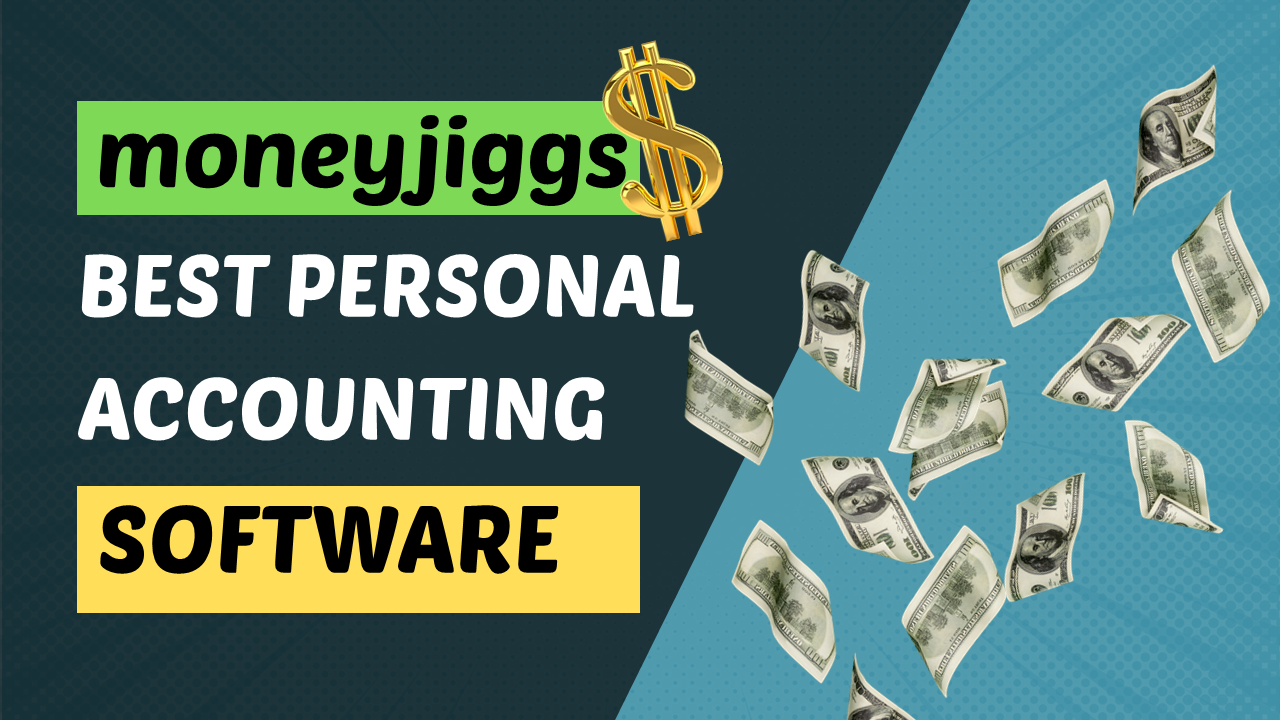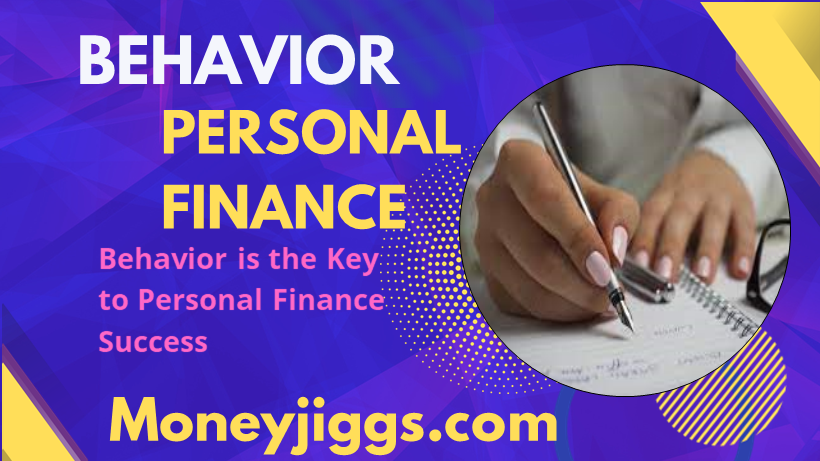10 Best Personal Accounting Software Solutions: Boost Your Financial Control Today!
Let’s face it—managing your finances can feel like herding cats. Between tracking expenses, budgeting, and preparing for tax season, it’s easy to get overwhelmed. But what if I told you there’s a way to take control of your money without losing your mind? Enter personal accounting software. These tools are like having a financial assistant in your pocket, helping you stay organized and make smarter money decisions. In this article, we’ll explore the 10 best personal accounting software solutions that can transform the way you handle your finances. Ready to boost your financial control? Let’s dive in!

Why You Need Personal Accounting Software
Think of personal accounting software as your financial GPS. It helps you navigate your income, expenses, and savings with ease. Whether you’re a budgeting newbie or a seasoned pro, these tools can save you time, reduce stress, and give you a clear picture of your financial health.
The Benefits of Using Accounting Software
- Automated Tracking: Say goodbye to manual data entry. These tools automatically sync with your bank accounts and credit cards.
- Budgeting Made Easy: Set spending limits and track your progress in real-time.
- Tax Prep Simplified: Generate reports and organize receipts for tax season.
- Financial Insights: Get a bird’s-eye view of your finances with charts and graphs.
What to Look for in Personal Accounting Software
Not all accounting software is created equal. Here’s what to consider before making a choice:
Ease of Use
You don’t need a degree in finance to use these tools. Look for intuitive interfaces and user-friendly features.
Features
Does it offer budgeting, invoicing, or investment tracking? Choose software that aligns with your needs.
Compatibility
Make sure it works on your preferred devices (desktop, mobile, or both).
Cost
Some tools are free, while others come with a price tag. Decide what fits your budget.
1. QuickBooks: The All-in-One Powerhouse
QuickBooks is like the Swiss Army knife of accounting software. It’s packed with features for budgeting, expense tracking, and even tax preparation.
Key Features
- Syncs with bank accounts and credit cards.
- Tracks income and expenses in real-time.
- Generates detailed financial reports.
Why It’s Great
QuickBooks is perfect for freelancers, small business owners, and anyone who wants a comprehensive financial tool.
Who Should Use It?
If you’re juggling multiple income streams, managing business expenses, or preparing for taxes, QuickBooks is a solid choice. It’s also great for those who want to collaborate with an accountant, as it allows easy sharing of financial data.
Pricing
QuickBooks offers several pricing tiers, starting at around $15 per month for the Simple Start plan. While it’s not the cheapest option, its robust features make it worth the investment.
2. Mint: The Budgeting Guru
Mint is like your personal financial coach. It helps you create budgets, track spending, and set financial goals.
Key Features
- Free to use.
- Automatically categorizes transactions.
- Sends alerts for bill payments and budget overages.
Why It’s Great
Mint is ideal for beginners who want a simple, no-frills way to manage their money.
Who Should Use It?
If you’re new to budgeting or just want a free tool to keep tabs on your spending, Mint is a fantastic option. It’s also great for people who want to track their credit score, as it provides free credit monitoring.
Pricing
Mint is completely free, making it one of the most accessible tools on this list.
3. YNAB (You Need A Budget): The Debt Destroyer
YNAB is all about giving every dollar a job. It’s a zero-based budgeting tool that helps you break the paycheck-to-paycheck cycle.
Key Features
- Encourages proactive budgeting.
- Offers educational resources to improve financial literacy.
- Syncs with bank accounts for real-time updates.
Why It’s Great
YNAB is perfect for anyone looking to get out of debt and build savings.
Who Should Use It?
If you’re struggling with debt or want to take a more disciplined approach to budgeting, YNAB is a game-changer. It’s also great for couples who want to manage their finances together, as it allows for shared budgeting.
Pricing
YNAB costs 14.99permonthor99 per year. While it’s not free, its unique approach to budgeting can pay for itself in savings.
4. Personal Capital: The Investor’s Best Friend
Personal Capital combines budgeting with investment tracking. It’s like having a financial planner and accountant in one.
Key Features
- Tracks net worth and cash flow.
- Analyzes investment portfolios.
- Offers retirement planning tools.
Why It’s Great
This tool is ideal for investors and those planning for retirement.
Who Should Use It?
If you have a diverse investment portfolio or are planning for retirement, Personal Capital is a must-have. It’s also great for high-net-worth individuals who want a comprehensive view of their finances.
Pricing
Personal Capital is free for budgeting and investment tracking. However, its wealth management services come with a fee, typically around 0.89% of assets under management.
5. Wave: The Freelancer’s Dream
Wave is a free accounting software designed for small business owners and freelancers.
Key Features
- Free invoicing and receipt scanning.
- Tracks income and expenses.
- Generates financial reports.
Why It’s Great
Wave is perfect for solopreneurs who need a simple, cost-effective solution.
Who Should Use It?
If you’re a freelancer or run a small business, Wave is an excellent choice. It’s also great for those who need to create professional invoices without paying a premium.
Pricing
Wave is free for most features, but it charges for payment processing and payroll services.
6. Quicken: The Classic Choice
Quicken has been around for decades, and it’s still a favorite for personal finance management.
Key Features
- Tracks spending and creates budgets.
- Manages bills and investments.
- Offers retirement planning tools.
Why It’s Great
Quicken is a reliable choice for those who want a tried-and-true solution.
Who Should Use It?
If you’re looking for a comprehensive tool that’s been tested over time, Quicken is a solid option. It’s also great for people who want to manage both personal and business finances in one place.
Pricing
Quicken offers several pricing tiers, starting at $35.99 per year for the Starter plan.
7. FreshBooks: The Invoicing Expert
FreshBooks is designed for freelancers and small business owners who need robust invoicing features.
Key Features
- Creates professional invoices.
- Tracks time and expenses.
- Integrates with other business tools.
Why It’s Great
FreshBooks is ideal for service-based businesses that need to streamline invoicing.
Who Should Use It?
If you’re a freelancer or run a service-based business, FreshBooks is a great choice. It’s also perfect for those who need to track billable hours.
Pricing
FreshBooks starts at $15 per month for the Lite plan.
8. Zoho Books: The Cloud-Based Solution
Zoho Books is a cloud-based accounting software that’s perfect for small businesses.
Key Features
- Tracks expenses and invoices.
- Manages inventory and projects.
- Integrates with other Zoho apps.
Why It’s Great
Zoho Books is a great choice for businesses that want a scalable, cloud-based solution.
Who Should Use It?
If you’re a small business owner looking for a comprehensive, cloud-based tool, Zoho Books is worth considering. It’s also great for businesses that already use other Zoho apps.
Pricing
Zoho Books starts at $15 per month for the Basic plan.
9. PocketGuard: The Spending Tracker
PocketGuard helps you track spending and find ways to save money.
Key Features
- Creates a personalized budget.
- Tracks bills and subscriptions.
- Identifies opportunities to save.
Why It’s Great
PocketGuard is perfect for anyone who wants to curb overspending and save more.
Who Should Use It?
If you’re looking to cut back on unnecessary expenses and save money, PocketGuard is a great tool. It’s also ideal for people who want a simple, straightforward budgeting app.
Pricing
PocketGuard offers a free version, but the Plus plan costs 7.99permonthor34.99 per year.
10. Tiller Money: The Spreadsheet Lover’s Tool
Tiller Money automates your finances in a spreadsheet format.
Key Features
- Syncs with bank accounts and credit cards.
- Updates spreadsheets automatically.
- Offers customizable templates.
Why It’s Great
Tiller Money is ideal for spreadsheet enthusiasts who want automation without losing control.
Who Should Use It?
If you love spreadsheets but want to automate the data entry, Tiller Money is perfect for you. It’s also great for people who want to customize their financial tracking.
Pricing
Tiller Money costs $79 per year.
How to Choose the Right Software for You
With so many options, how do you pick the best one? Here’s a quick guide:
Identify Your Needs
Are you focused on budgeting, investing, or invoicing? Choose software that aligns with your goals.
Test Drive
Most tools offer free trials. Take advantage of them to see which one feels right.
Read Reviews
Check out user reviews to get insights into pros and cons.
Tips for Getting the Most Out of Your Software
Once you’ve chosen your tool, here’s how to maximize its potential:
Set Up Automatic Syncing
Link your bank accounts and credit cards for real-time updates.
Regularly Review Your Finances
Schedule weekly or monthly check-ins to stay on top of your money.
Use Reports to Make Decisions
Analyze your financial data to identify trends and opportunities.
Conclusion
Managing your finances doesn’t have to be a headache. With the right personal accounting software, you can take control of your money, reduce stress, and achieve your financial goals. Whether you’re a budgeting beginner or a seasoned pro, there’s a tool on this list that’s perfect for you. So, what are you waiting for? Boost your financial control today!
FAQs
1. Is personal accounting software safe to use?
Yes, most reputable tools use encryption and other security measures to protect your data. Always choose software with strong “cyber security” features.
2. Can I use accounting software for my small business?
Absolutely! Many tools, like QuickBooks and FreshBooks, are designed for both personal and business use.
3. Are there free accounting software options?
Yes, tools like Mint and Wave offer free versions with robust features.
4. How do I know which software is right for me?
Consider your financial goals, budget, and preferred features. Test a few options to see which one fits your needs.
5. Can accounting software help with taxes?
Yes, many tools generate reports and organize receipts to simplify tax preparation.
6. What if I’m not tech-savvy?
Most personal accounting software is designed to be user-friendly. Look for tools with intuitive interfaces and helpful customer support.
Q7. Can I import my existing financial data into personal accounting software?
Most personal accounting software allows you to import existing financial data, such as bank statements and transactions. This feature simplifies the transition to a new software.
Q8. How often should I update my financial data in the software?
It’s advisable to update your financial data regularly, ideally on a daily or weekly basis. This ensures accurate tracking of expenses, budget adherence, and up-to-date financial insights.
Q9. Are there any security risks associated with using personal accounting software?
Reputable personal accounting software providers prioritize security. They typically use encryption, secure data storage, and other protective measures. However, it’s essential to use strong, unique passwords and enable additional security features for your accounts.
Q10. Can personal accounting software help me save money?
Yes, personal accounting software can help you save money by providing insights into your spending habits, setting budgets, and identifying areas where you can cut costs. It encourages responsible financial behavior and savings goals.
 Money Jiggs A Best Website Sharing Educational and Jobs Content
Money Jiggs A Best Website Sharing Educational and Jobs Content


